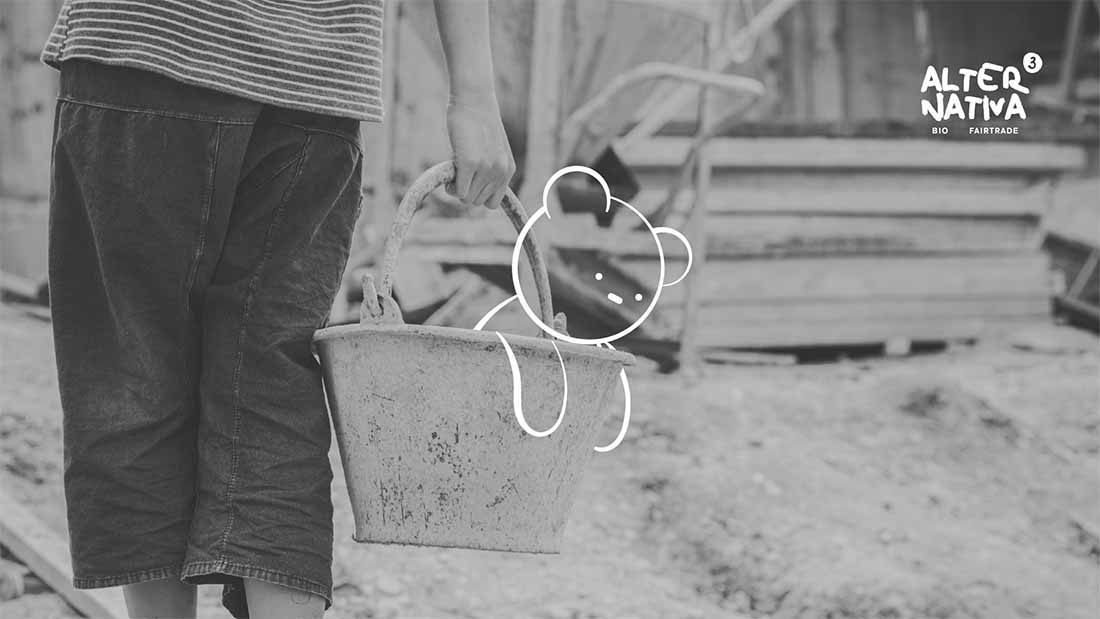Despite being in 2024, we are still celebrating on 12 June the World Day Against Child Labour. This means that there is still a long way to go to ensure that the human rights of all people, and especially of vulnerable groups such as children, are respected.
The current child labour situation
According to the UNICEF and ILO 2020 Reports, 160 million children work in the world (that's 1 in 10).. As well as being alarming, it is even more alarming that it is growing, especially in the 5-11 age group.
Studies on child exploitation
Studies have shown that 1 in 3 children do NOT go to school and they have to dedicate themselves to work.
For all this, and much more, it is very necessary to continue claiming and publicising the benefits of Fair Trade in this aspect.
Fair Trade and child protection
One of the Fair Trade principles is that it is child labour prohibited. Children should attend school.
Fair Trade is based on a essential principle prohibiting forced labour and the child labour exploitation. This ensures that no child engages in activities that harm his or her physical, mental, social or spiritual development, interfere with his or her education, or are carried out in abusive conditions.
In addition, the Fair Trade system promotes decent and safe working conditions for all workers, ensuring that economic gains are not achieved at the expense of human rights and social justice.
As stated by the State Fair Trade Coordinator, this organisation adheres to the UN Convention on the Rights of the Child, as well as to national and local legislation on the employment of minors.
AlterNativa3's projects in support of children
Supporting children in producer countries in the Global South
The projects we carry out in the producing countries of the Global South are aimed at supporting projects that always include children among the groups of people involved.
In Nicaragua, and with the production cooperative COMULACS, we are developing several cooperation projects that are beneficial for the training and development of children.
Encouraging reading in primary schools
In particular, we highlight the Reading Corners in primary schools, which are small libraries in the centres that promote reading among all pupils.
The creation of these reading points includes the provision of materials necessary for their operation, such as books and school materials.
Several poor rural schools have benefited from these reading points, a reading point has been organised at the headquarters of a COMULACS producer cooperative and a public library has been established in a local community.
School gardens: education and nutrition
As a cooperative, we remain committed to contributing to the production and processing of healthy and wholesome food for children.
For this reason, another of the projects dedicated to children is the development of school gardens. The aim of the project is to raise awareness of the cultivation process of its main foodstuffs and to promote a healthy and varied diet among students.
Working in school gardens involves a collaborative approachThe project is also aimed at integrating mothers and fathers in the process. Participants are provided with documentation to inform them about the school garden procedure: how to set up a school garden, different crop varieties, garden behaviour, advantages and disadvantages and the application of fair trade and gender equity values.
Community benefits
It should be noted that these initiatives have an indirect impact on the whole community in the production area. and which also involves all the members of each family, so that development is integral and extends to the entire productive environment, not only to the members of the cooperative.

